This is Maria.
She cares deeply—and acts on it.
A lifelong New Hampshire enthusiast with a background in media and politics, Maria has found her purpose in the intersection of climate, health, and kids. As the Director of CHICKS (Climate and Health Initiative for Caregivers and Kids), she’s working to make the abstract personal—connecting the dots between rising temperatures, childhood asthma, and the price of eggs.
Maria isn’t here to alarm people. She’s here to empower them—especially children. Her work centers real people, real problems, and real hope, showing that caring for our communities and our climate go hand in hand.
Maria Finnegan is the Director of CHICKS at New Hampshire Healthy Climate.
Links & notes:
This episode was recorded at the Hannah Grimes Center for Entrepreneurship in Keene, NH
Music provided by Sneaky Miles
Youtube
Episode Summary
What’s your connection to New Hampshire?
We have a lifelong bond with New Hampshire. We grew up in Milford and spent formative years here with family deeply rooted in the community. Even after moving away, we always knew we’d return—and finally did in 2018. Being back has felt like coming home, and we’ve embraced becoming an active part of the local fabric.
How did your background in media shape your path?
Working in major media markets taught us the power of storytelling, but also the limitations—especially around complex issues like climate change. We’ve learned that media often focuses on endpoints and dramatization, leaving little space for work-in-progress stories and hope. That’s why we value spaces like this podcast that highlight solutions and progress.
What inspired your shift toward climate work?
When we returned to New Hampshire, something felt different—the seasons, the weather, the rhythm of life. Then, after becoming a parent, climate change became deeply personal. It wasn’t just about us anymore—it was about our child’s future. That shifted everything.
Why focus on children and climate?
Children are among the most vulnerable to climate change, yet they’re often left out of the conversation. Their developing bodies are more impacted by things like air quality and heat. But they also get it. Kids are observant, informed, and eager to act—they just need to be empowered, not protected from the truth.
What is the Climate and Health Initiative for Caregivers and Kids (CHICKS)?
It’s an initiative focused on educating and empowering children and caregivers about the health impacts of climate change. Our goal is to make climate real and actionable on a human level—not abstract. We teach kids how to adapt and engage with solutions in age-appropriate, hopeful ways.
How do we bring the climate conversation down to earth?
We focus on people—on listening, storytelling, and connection. Climate change can feel overwhelming and distant, but when we talk about its effects on things like childhood asthma or heatwaves in your town, people start to understand how real and urgent it is.
What’s the biggest challenge in this work?
Ironically, it’s often not the kids—it’s the adults. Parents, lawmakers, and business leaders sometimes resist or downplay the issue, either because it feels abstract or because they’re overwhelmed by other urgent needs. Our job is to meet them where they are, make the issue relatable, and highlight solutions that align with their values.
How do we navigate optimism in such a heavy space?
We see so many people stepping up—helpers, problem solvers, and local leaders. Optimism doesn’t mean ignoring reality; it means facing it with determination and heart. We draw hope from kids, community members, and the everyday actions people are taking.
Why is local action so powerful in New Hampshire?
New Hampshire’s localism is a superpower. There’s a deep tradition of town-level decision-making and direct democracy. Change often happens neighbor-to-neighbor. That’s where we focus—on the hyperlocal, where you can still shake hands, ask questions, and get things done together.
How does storytelling help create change?
Our grandfather taught us that listening—truly listening—to people is transformational. That’s something we’ve carried into every job, from journalism to climate advocacy. Stories create empathy and open doors, and that’s where real change begins.
What’s it like to work across multiple identities—media, climate, politics?
It’s messy, but beautiful. Life doesn’t come in tidy boxes, and neither does this work. Sometimes the worlds of journalism, politics, and advocacy all collide in one day—like when a congresswoman walks into your climate interview. That’s New Hampshire. That’s real life.
Why do you focus on action, not just awareness?
We’re not here to just raise alarms—we’re here to build momentum. There’s already so much good work happening across the state, often under the radar. People want to be part of a winning team, and we’re here to show them that they already are.
What keeps you going?
The belief that people care. The belief that things can change. And the knowledge that if we focus on kids, on connection, and on local community, we’re laying the foundation for a better, more hopeful future.
*This episode summary was generated by an AI analyzing a transcript of the interview. The questions, wording, and written meaning of particular sections may contain slight differences to the original conversation. We include these summaries to give listeners a brief, readable synopsis of the episode. The full episode transcript is available on granitegoodness.com.


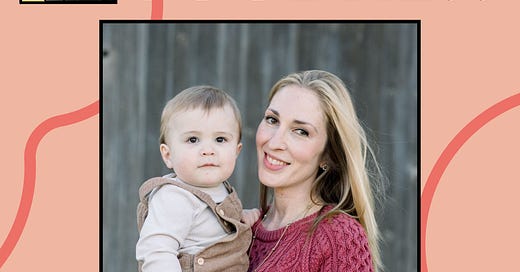


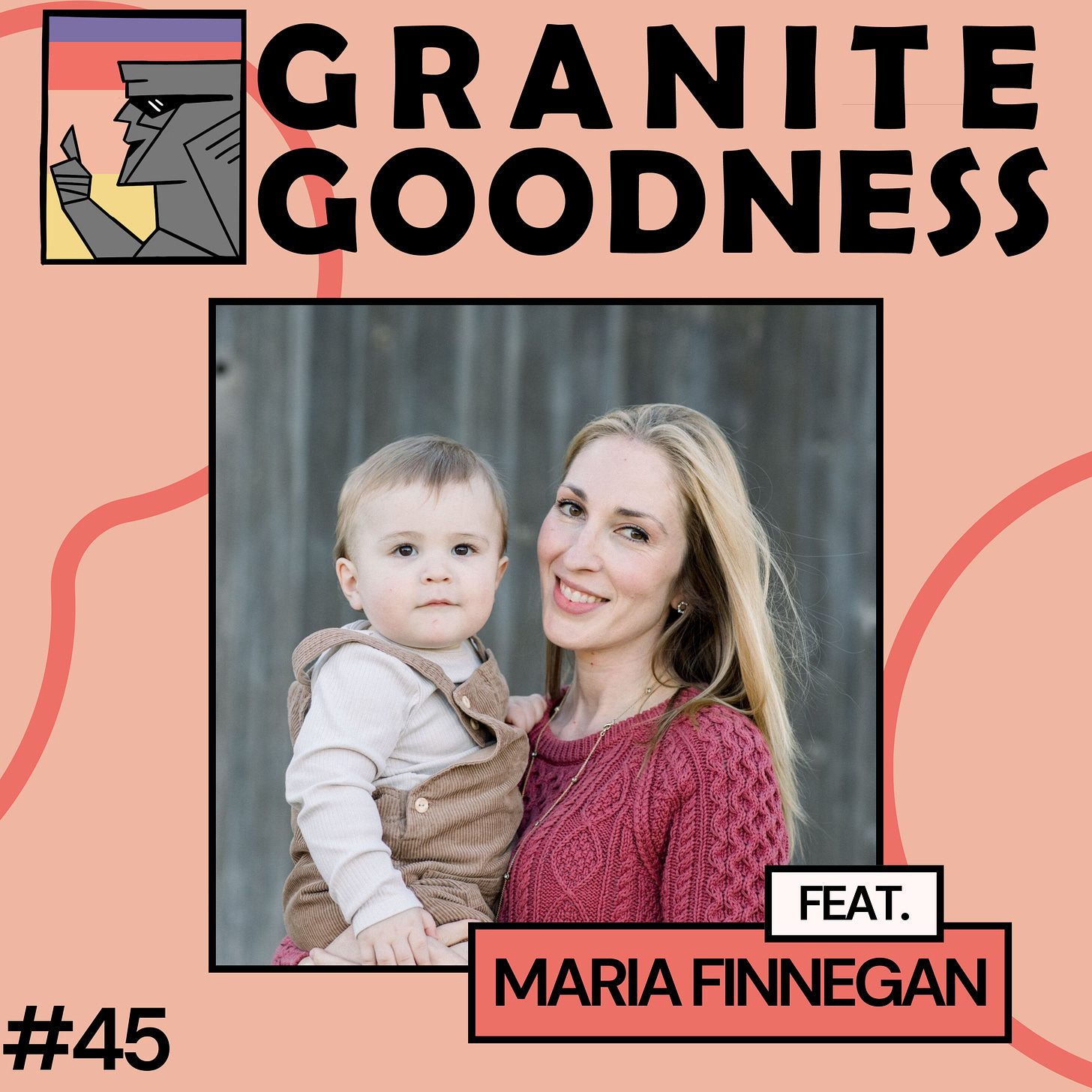

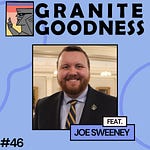
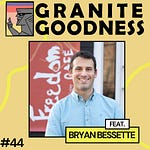
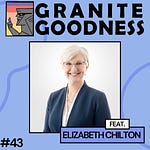
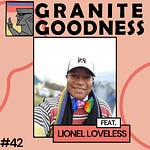
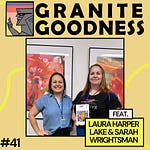


Share this post